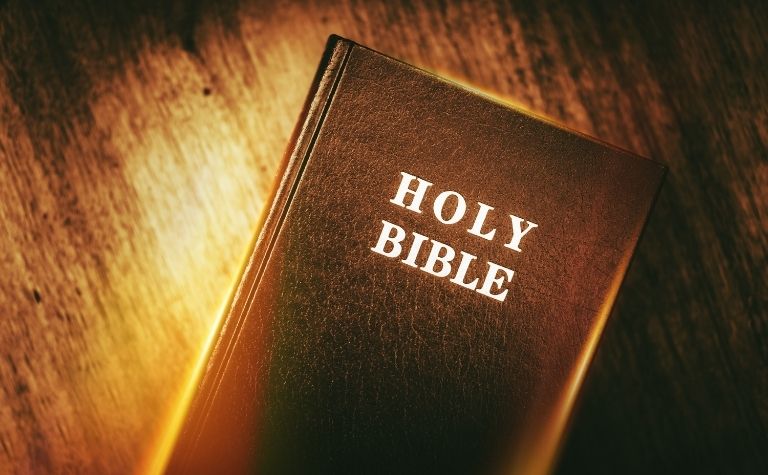Christianity encompasses a wide range of beliefs and practices. Within this broad spectrum, two major theological perspectives have emerged: Conservative Christianity and Progressive Christianity.
These perspectives represent different approaches to interpreting the Bible, understanding theology, and engaging with contemporary social and political issues. While both perspectives generally fall under the umbrella of historic Christianity, they often have distinct beliefs and practices that set them apart.
The article below, filled with concise summaries and multiple comparison charts, will explore the key differences between Conservative and Progressive Christianity.

Conservative and Progressive Christianity: Differences
Conservative Christianity and liberal Christianity don’t merely have theological differences. Instead, they have different worldviews on nearly all matters in life, like politics, relationships, and more.
| Conservative Christianity | Progressive Christianity | |
|---|---|---|
| Beliefs and Theology | Emphasizes traditional orthodox doctrines such as the inerrancy of the Bible, the virgin birth, and the bodily resurrection of Jesus. | More open to reinterpreting or questioning traditional doctrines. Often view the Bible as a historical and cultural document, rather than inerrant. |
| Social and Political Views | Tends to hold conservative views on issues like abortion, same-sex marriage, and gender roles. Prioritizes personal morality and traditional family values. | Tends to hold liberal views on social issues, emphasizing social justice, inclusivity, and equality. May prioritize issues like poverty, climate change, and human rights. |
| Worship and Church Practices | Often features a variety of worship styles, liturgy, hymns, and modern music. Emphasizes sacraments and formal church structures. | May feature contemporary worship styles, with a focus on community engagement and social action. Less emphasis on formal liturgy. |
| Approach to Scripture | Typically interprets the Bible literally according to genre and believes it to be the inerrant word of God. | Often interprets the Bible more metaphorically or allegorically, showing less interest in literary and cultural context. |
Differences in Beliefs and Theology
Conservative Christianity, sometimes referred to as fundamentalism or evangelicalism, holds to a more literal and traditional interpretation of the Bible.
On the other hand, Liberal-Progressive Christianity tends to adopt a more flexible and metaphorical approach to interpreting the Bible.
| Conservative Christianity | Progressive Christianity | |
|---|---|---|
| Nature of God | Emphasizes the sovereignty, holiness, and love of God. Holds to a Trinitarian view of God as Father, Son, and Holy Spirit. | Often emphasizes the love, mercy, and inclusivity of God. Has a more flexible view of the nature of God. |
| Authority of the Bible | Believes the Bible is the inerrant and literal word of God, and the ultimate authority on faith and practice. | Views the Bible as a valuable but human document, open to interpretation and influenced by present-day values. |
| Salvation | Emphasizes the need for personal repentance and faith in Jesus Christ for salvation. Often holds to the doctrine of original sin and the need for atonement. | Often emphasizes a more inclusive view of salvation, focusing on the transformative power of love and justice. May reject or reinterpret doctrines like original sin. |
| Jesus Christ | Affirms the virgin birth, deity, death, and bodily resurrection of Jesus Christ as central to the Christian faith. | Tends to view Jesus as a moral teacher and social reformer, and may interpret events like the virgin birth and resurrection metaphorically. |
| Afterlife | Often holds to traditional views of heaven and hell, with eternal rewards or punishment based on one’s beliefs and actions. | Has a more nuanced or symbolic view of the afterlife, focusing on the present impact of one’s beliefs and actions. |
| Social Issues | Tends to hold conservative views on issues like abortion, same-sex marriage, and gender roles, based on literal interpretations of the Bible. | Tends to hold liberal views on social issues, emphasizing social justice, inclusivity, and equality, based on broader interpretations of the Bible. |

Social and Political Views
Conservative Christianity often aligns with more traditional social and political views. In the United States, many conservative Christians are associated with the Republican Party and its platform.
Liberal Christianity, on the other hand, tends to align with more progressive social and political views. In the United States, many progressive Christians are associated with the Democratic Party and its platform.
| Conservative Christianity | Progressive Christianity | |
|---|---|---|
| Abortion | Opposes abortion, viewing it as morally wrong based on biblical principles such as the sanctity of life. | Supports a woman’s right to choose, emphasizing personal autonomy, compassion, and social justice considerations. |
| LGBTQ+ Rights | Often opposes same-sex marriage and LGBTQ+ rights, based on literal interpretations of biblical passages. Often advocates for traditional gender roles and identities. | Supports LGBTQ+ rights, including same-sex marriage and gender equality, emphasizing love, acceptance, and social justice. |
| Social Welfare | May prioritize individual charity and private organizations for helping the needy, with an emphasis on personal responsibility. | Advocates for government policies that promote social welfare, emphasizing collective responsibility and systemic change. |
| Immigration | View vary. Many support stricter immigration policies, emphasizing national security and the rule of law. | Advocates for more inclusive and compassionate immigration policies, emphasizing human rights and the dignity of all people. |
| Environmental Stewardship | May prioritize economic growth and individual rights over environmental regulations. | Advocates for strong environmental policies, emphasizing the interconnectedness of all life and the responsibility to care for the Earth. |
| Religious Freedom | Emphasizes the importance of protecting the rights of Christians to practice their faith without interference, including in public spaces and businesses. | Supports religious freedom for all, including non-Christians and non-religious individuals, emphasizing pluralism and mutual respect. |

Worship and Church Practices
Conservative Christianity tends to emphasize traditional worship practices and liturgy. Services may be more formal, with a focus on music, scripture readings, and sermons that adhere closely to biblical teachings.
Progressive Christianity also embraces different worship styles. Services place emphasis on prayer, communion, baptism, and preaching from the Bible.
| Conservative Christianity | Progressive Christianity | |
|---|---|---|
| Worship Style | Some are traditional, with hymns, liturgy, and formal prayers. Others are more modern. | Tends to be more contemporary, with modern music and informal prayers. May emphasize inclusivity and creativity. |
| Sermons | Typically focused on biblical exposition, moral teachings, and doctrinal orthodoxy. May emphasize the authority of Scripture and the need for personal salvation. | Often centered on social justice, love, and acceptance. May emphasize the relevance of Scripture to current issues and the importance of community engagement. |
| Sacraments | May adhere to traditional sacraments such as baptism and communion, with specific rituals and theological interpretations. | May have a more flexible approach to sacraments, emphasizing their symbolic and communal aspects rather than strict theological interpretations. |
| Church Governance | Often hierarchical, with ordained clergy and established denominational structures. May emphasize the authority of church leaders. | Tends to be more egalitarian, with lay participation and shared decision-making. May emphasize the priesthood of all believers. |
| Outreach and Evangelism | Often prioritizes evangelism and conversion, with an emphasis on sharing the gospel and saving souls. | Often focuses on social justice and community service, emphasizing the importance of loving and serving others. |
| Inclusivity | May have more traditional views on gender roles, marriage, and sexuality. May emphasize the importance of adhering to biblical teachings. | Tends to be more inclusive and affirming of LGBTQ+ individuals, women in leadership, and interfaith relationships. May emphasize the importance of acceptance and diversity. |

Approach to Scripture
Conservative Christianity typically adheres to a more literal interpretation of the Bible. People in this tradition often view the Bible as the inerrant and infallible word of God, and they seek to follow its teachings closely.
Progressive Christianity, on the other hand, tends to approach the Bible with a more critical and interpretive lens. People in this tradition may view the Bible as a collection of historical and cultural documents that reflect the beliefs and experiences of their authors.
| Conservative Christianity | Progressive Christianity | |
|---|---|---|
| Biblical Authority | Typically views the Bible as the inerrant and infallible Word of God. Emphasize the literal interpretation of Scripture according to genre. | Often views the Bible as a collection of inspired writings that reflect the cultural and historical context of their authors. May emphasize the metaphorical and symbolic interpretation of Scripture. |
| Biblical Interpretation | Prioritize a historical-grammatical approach to interpretation, seeking to understand the original meaning of the text. | Tends to prioritize modern interpretations, using current social values. May emphasize the ongoing relevance of Scripture to current issues. |
| Role of Tradition | May adhere to traditional doctrines and creeds, emphasizing the importance of orthodoxy and continuity with historic Christianity. | Tends to be more open to reinterpreting traditional doctrines and creeds in light of contemporary insights and experiences. May emphasize progressive theological reflection. |
| Use of Scripture in Worship | May prioritize the reading and exposition of Scripture in worship services, emphasizing the importance of biblical teaching and preaching. | May incorporate Scripture into worship services in creative ways, emphasizing the importance of engaging with Scripture in community. |
| Approach to Difficult Passages | May seek to harmonize and reconcile difficult passages with established doctrines, emphasizing the importance of biblical consistency. | Tends to be more open to questioning and wrestling with difficult passages, emphasizing the importance of honest engagement with Scripture. |
Conservative Christians often prioritize doctrines such as the virgin birth, the resurrection of Jesus, and the authority of the Bible. They often emphasize the importance of personal salvation and adherence to biblical moral standards.
Progressive Christians often emphasize the broader themes and messages of the Bible, such as love, justice, and compassion, rather than focusing on specific doctrines or moral rules. They often seek to apply the teachings of the Bible to contemporary social and ethical issues.
Conclusion
The differences between Conservative Christianity and Liberal-Progressive Christianity are multifaceted, encompassing beliefs, theology, social and political views, worship practices, and approaches to scripture.
While Conservative Christianity tends to emphasize traditional doctrines, moral standards, and a literal interpretation of the Bible, Progressive Christianity often focuses on broader themes of love and justice, and often interprets the Bible in a more critical manner.
Related Questions
Comparing Christianity and Buddhism reveals significant contrasts between two of the world's major religions. Christianity centers around the belief in a single God who exists in three persons and...
Exploring the world's religions using the comparison charts below offers fascinating insights into cultures and beliefs. It opens doors to understanding human history, values, and...
